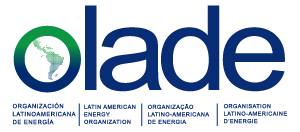In the digital era we live in, cybersecurity in the energy sector has proven to be crucial for economic stability and national security. The connectivity between digital systems and critical energy infrastructure presents opportunities for operational efficiency as well as unprecedented threats. Latin America and the Caribbean, with their diverse economic and technological landscapes, face unique challenges in this area. Implementing international security standards is essential to strengthen and protect critical infrastructure and ensure sustainable economic development. This highlights the urgent need to adapt to a constantly evolving digital environment.
Cybersecurity in the sector focuses on protecting critical systems of energy generation, transmission, and distribution, as well as infrastructure in the gas and oil industry. In 2024, ransomware attacks against critical infrastructures like nuclear and oil facilities are drastically increasing, causing disruptions and million-dollar demands, exposing vulnerabilities, and threatening energy and economic security.
Advances in digitalization have simplified these processes but have also expanded the attack surface and exposed infrastructure to significant risks. In Latin America and the Caribbean, the landscape is particularly complex due to the lack of clear regulation, a shortage of qualified experts, and limited investment in security technology. These deficiencies heighten the region’s vulnerability to cyber threats.
Recent years have seen an alarming increase in ransomware attacks in our region. The declaration of a national state of emergency due to the disruption of public services and the loss of sensitive data has highlighted the devastating potential of cyberattacks on critical infrastructure and underscored the urgent need to strengthen cybersecurity in the region.
The economic impact of cyberattacks in Latin America and the Caribbean is significant, representing approximately 1% of the annual GDP, which could rise to 6% if critical infrastructure is compromised. Only 10 out of the 33 countries in the region rank above the global average in the 2020 Global Cybersecurity Index, emphasizing the existing gap in this area.
This index also indicates that our region has the lowest level of cybersecurity compared to other regions worldwide, underscoring the urgent need to strengthen cybersecurity capabilities and strategies in the region. Budget constraints and lack of investment in advanced security technologies are exacerbating the situation. This problem is particularly severe for small and medium-sized enterprises that lack the necessary resources to implement robust security solutions.
To improve security in the energy sector, it is important to adopt international standards to ensure the integrity and reliability of critical infrastructure and mitigate the impact of cyberattacks. Cybersecurity in the energy sector is undoubtedly a key issue for Latin America and the Caribbean, given the rapid digitalization and increasingly sophisticated cyber threats. It is important for stakeholders in the energy sector to adopt a strategic approach based on threat intelligence, foster cooperation among nations, and align their activities with unified cybersecurity standards. Attacks will persist, and the region must be prepared to effectively respond to and mitigate these threats.
In this regard, regional cooperation and information sharing between countries and international organizations is essential.
Andrés Rebolledo Smitmans
Olade’s Executive Secretary


